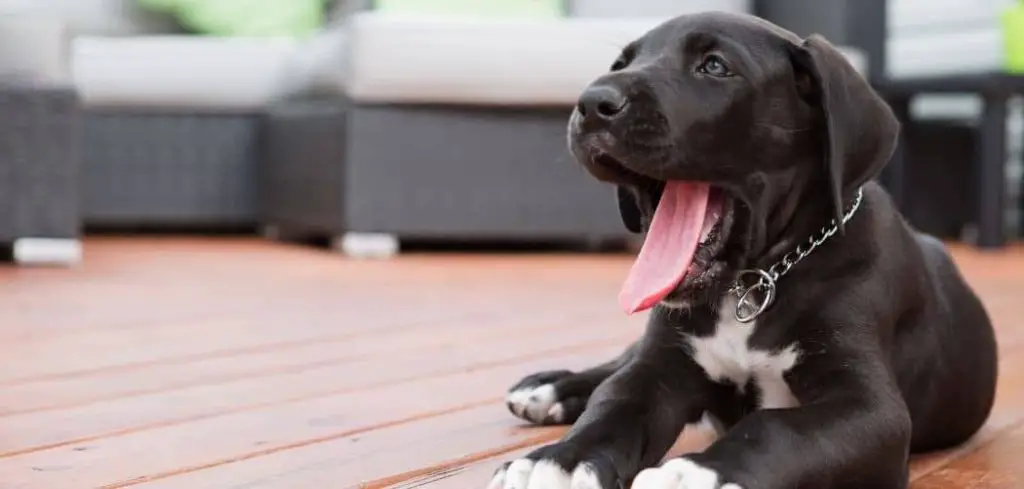When your dog is constantly licking their paws and also refusing to eat, it’s more than just quirky behavior—it’s a sign something may be wrong. These symptoms often point to physical discomfort, underlying health issues, or emotional distress.
We outline the common causes of dog licking paws and not eating, what you can do at home, and when to seek veterinary help.
Dog Licking Paws and Not Eating — Why It Happens
Excessive paw licking paired with appetite loss often signals pain, allergies, or an underlying medical issue. Dogs might lick their paws to soothe irritation, injury, or anxiety.
If they’re also refusing food, it could mean the discomfort is more widespread or serious.
Common causes include skin allergies, infections, GI problems, joint pain, or even stress. Monitoring these behaviors together gives you important clues about your dog’s overall health.

Common Causes of Dog Licking Paws and Not Eating
Allergies (Food or Environmental)
Allergies are a frequent culprit behind excessive paw licking.
Whether triggered by pollen, dust mites, grass, or certain foods, allergies can cause itchy skin and digestive upset.
Dogs often lick their paws as a reaction to systemic itchiness. At the same time, stomach discomfort or nausea may reduce their interest in food.
Other signs include red paws, rashes, or ear infections.
Pain or Injury
An injured paw can cause obsessive licking and behavior changes.
A cut, burn, foreign object, or sore joint might lead a dog to focus on licking a specific area.
If walking becomes painful, they may rest more and show less interest in eating.
Check for limping, swelling, or tenderness, especially after walks or play.
Skin Infections
Bacterial or fungal infections between the toes can cause severe irritation.
Dogs may lick their paws constantly to relieve the itch or burning sensation. Some may even chew to the point of causing wounds.
Appetite loss may be linked to discomfort or fever from the infection. Watch for odors, crusty spots, or moist, red skin between the toes.
Read more: Dog Licking Paws Excessively (When it’s more than just grooming)
Gastrointestinal Upset
Digestive discomfort can show up in multiple ways—including paw licking.
Some dogs develop a habit of licking when they’re nauseous or experiencing acid reflux. At the same time, GI issues may reduce their desire to eat.
If paw licking coincides with vomiting, burping, or gurgling sounds, a stomach issue may be the root cause.
Anxiety or Stress
Emotional distress can lead dogs to self-soothe by licking—and skip meals.
Dogs under stress from environmental changes, loneliness, or loud noises might turn to excessive licking.
Loss of appetite is also a hallmark of canine anxiety. Other signs include pacing, whining, hiding, or destructive behaviors.
Routine and reassurance can help reduce anxiety-driven symptoms.
What to Do If Your Dog Is Licking Paws and Not Eating
Begin by inspecting your dog’s paws for any visible signs of injury, swelling, or debris.
Clean the area gently with warm water if needed. Offer bland food to see if your dog has any interest in eating something easy on the stomach.
Make sure their environment is calm, especially if they’ve experienced stress.
Keep your dog from over-licking by using an e-collar or wrapping the paw temporarily.
Track when the licking and appetite loss started, and note if it happens after meals, outdoor walks, or changes in routine.
This timeline will help your vet pinpoint a cause more easily.
When to Call or Visit Your Vet
Contact your veterinarian if your dog:
Licks their paws nonstop despite redirection
Has visible wounds, swelling, or limping
Refuses to eat for more than 24–48 hours
Has vomiting, diarrhea, or signs of fever
Shows signs of severe allergies (itching all over, red skin, hot spots)
Persistent symptoms need professional attention—especially when two behaviors like paw licking and appetite loss occur together.
Read more: My dog is being lazy and not eating (What could be going on?)
Key Takeaway
When your dog is licking their paws and not eating, it’s time to pay attention.
These combined symptoms can point to discomfort, infection, or stress. While some causes are minor and resolve with rest, others may need prompt veterinary care.
Watch for patterns, provide comfort, and don’t hesitate to call your vet when symptoms linger or worsen.
Your attentiveness can make all the difference in your dog’s recovery.
